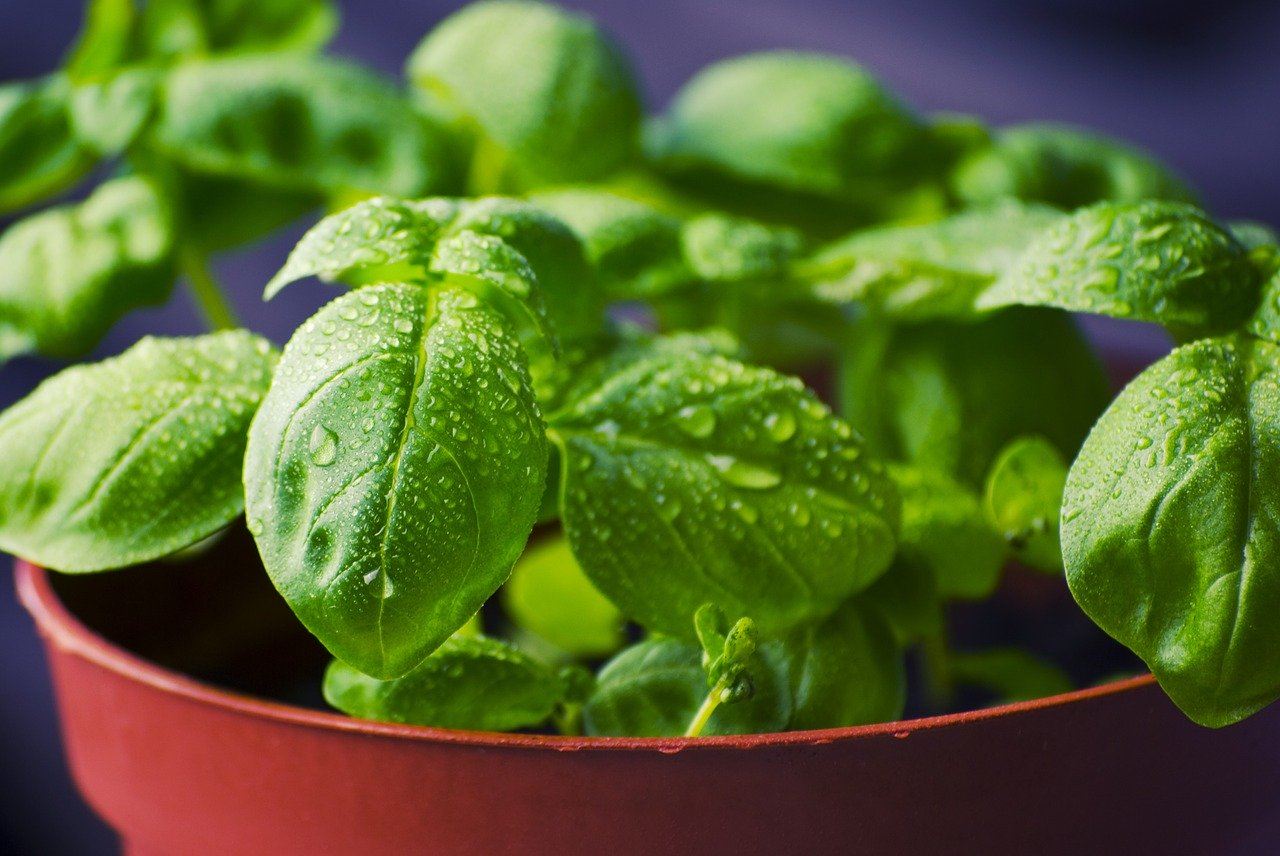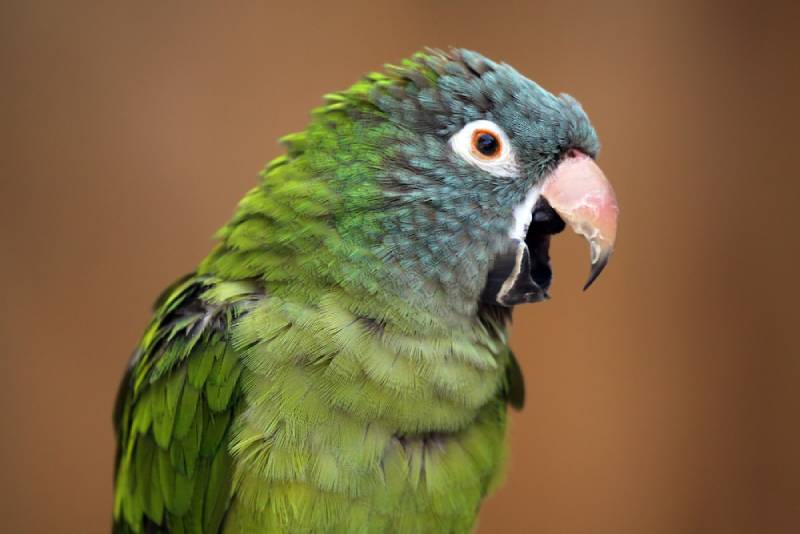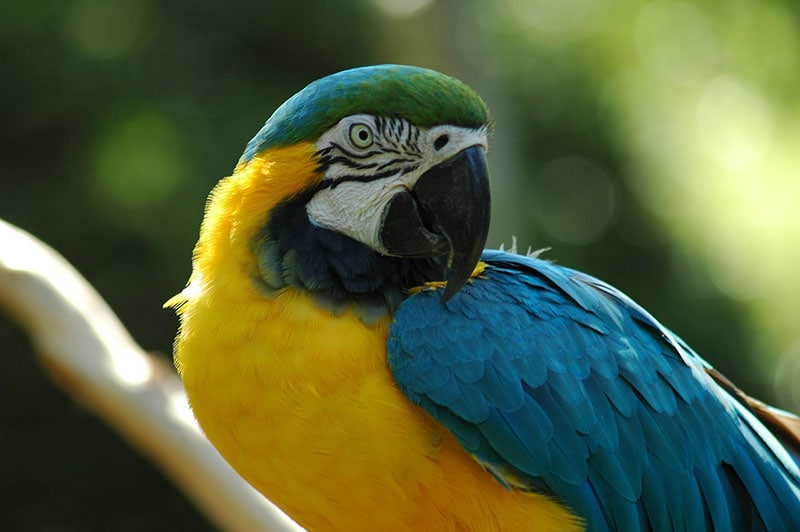Can Parrots Eat Basil? Vet Reviewed Health Concerns
Updated on

Feeding the healthiest and safest foods and supplements to your parrot is an essential part of taking care of your pet. It’s also important to find new healthy foods to add to your bird’s diet that they will love.
If you’ve been thinking that giving fresh herbs to your parrot, particularly basil, is probably a good idea, you’d be right! Basil can potentially be a healthy addition to a parrot’s diet, but like everything else, only you should do so in moderation.
Let’s look at basil and its benefits, other herbs that are good for parrots, and the ones to avoid.
The Benefits of Basil
Basil is native to Africa, Asia, and India. The word “basil” actually comes from an ancient Greek word, “basilikhon,” which translates to, “royal.”
There are at least 60 varieties of basil, but the one that we are most familiar with is sweet basil (Ocimum basilicum). Basil has been linked with several health benefits in humans and for potentially having some antibacterial and anti-inflammatory properties.

What Are the Risks of Basil for Parrots?
There aren’t too many risks with feeding basil to your parrot. But just like any new food or ingredient, you should introduce it slowly.
Some parrots might get sick when they eat something new like basil, so always give them a tiny amount at first, and gauge how much they like it and whether they experience an adverse reaction.
It’s also a good idea to run the addition of something new to your parrot’s diet by your veterinarian.
What’s the Best Way to Give Basil to Your Parrot?
Basil must be given in moderation. Some parrots might not even like it; as an herb, it’s quite strong in flavor.
So, start with the smallest amount: A few leaves once a week is plenty to start, and you can gradually give your parrot more once you’ve determined that they like it.
Fresh basil is ideal, and growing it yourself would be the best option. But if you buy it fresh at the store, wash it thoroughly to remove dirt and pesticides. It could seriously harm your parrot if they eat any unwashed produce or herbs.

Can You Give Basil to Different Species of Parrots?
Most parrot species have a similar diet, meaning they can eat basil without any ill effects.
Large Parrots
Large parrots like Macaws, Amazons, and African Greys can occasionally eat basil. Bear in mind that some parrots, particularly the African Grey, can be picky eaters, and they might find the basil too strong for their tastes.
Small Parrots
Small parrots, including Parrotlets and Lovebirds, will also benefit from consuming basil but will need smaller portions.
It’s not necessarily the species that determines whether they can eat basil. Each individual parrot will let you know if they like it or dislike it.
Conclusion
Basil can be a potentially healthy treat for your parrot, provided they like it. But even the healthiest things can be eaten in excess and cause issues. It’s a good idea to switch around the kinds of herbs that you are feeding your parrot so they can reap the health benefits from a variety of food sources.
Speak to your vet before trying a new food on your parrot. They can give you further advice on how much basil to feed your parrot.
Also, don’t force it on them. If you give basil to your parrot and they don’t like it, there are other ways to get those health benefits without giving your bird something that they dislike.
Featured Image Credit: Tookapic, Pixabay













